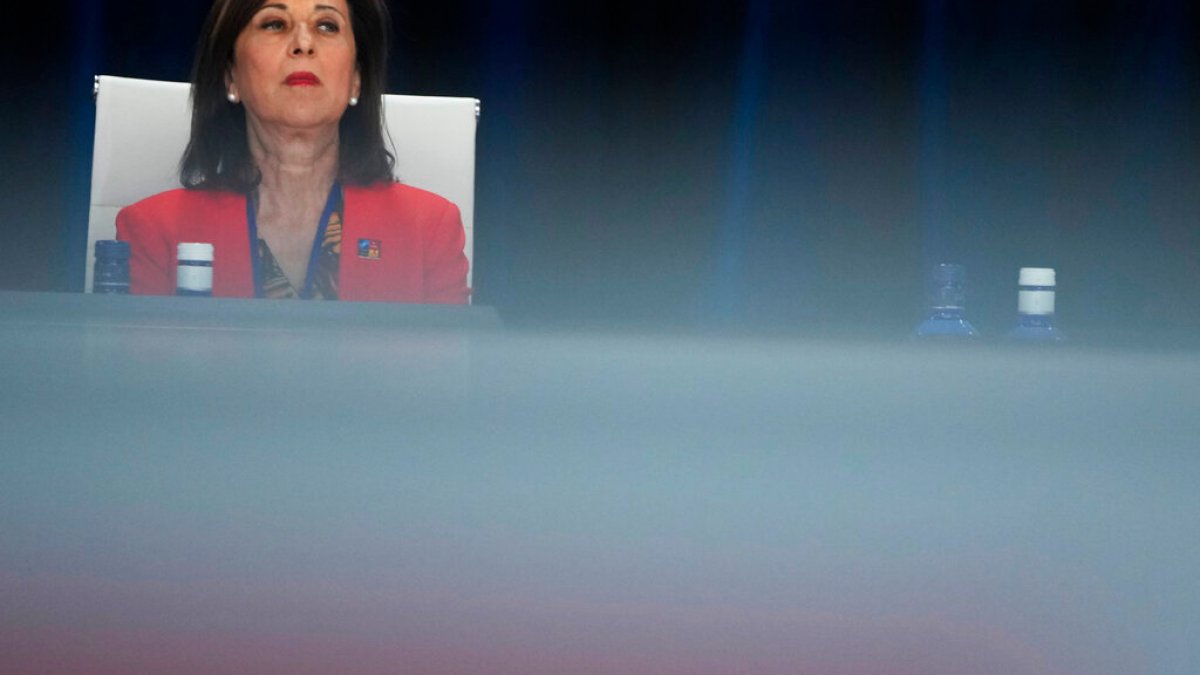Republican senators in the United States have blocked $106bn in new funding for Ukraine and Israel, rejecting appeals from President Joe Biden amid anger over the exclusion of immigration reforms they had demanded as part of the package.
Biden had earlier warned of dire consequences for Kyiv – and a “gift” to Russia’s Vladimir Putin – if Congress failed to pass the measure, which includes about $61bn to help Ukraine keep up pressure on Russia during the freezing winter months, as well as help for Israel and Gaza.
“They’re willing to literally kneecap Ukraine on the battlefield and damage our national security in the process,” Biden said.
The entire 49-strong Republican minority in the upper chamber voted against the proposal, pointing to a lack of government action on the estimated 10,000 migrants crossing from Mexico into the US every day.
“Everyone has been very, very clear on this to say we’re standing firm. Now is the moment,” Senator James Lankford, a lead Republican negotiator on immigration and border issues, told Fox Business ahead of the vote.
“We’re completely out of control at the southern border, and it’s time to resolve this.”
Citing aid for Israel, independent senator Bernie Sanders also voted against the bill, which needed 60 votes to pass.
Biden has earlier pleaded with Republicans over the package, warning that a victory for Russia over Ukraine would leave Moscow in a position to attack NATO allies and draw US troops into a war.
“If Putin takes Ukraine, he won’t stop there,” Biden said. Putin will attack a NATO ally, he predicted, and then “we’ll have something that we don’t seek and that we don’t have today: American troops fighting Russian troops”, Biden said.
“We can’t let Putin win,” he said.
Border security with Mexico has emerged as a major stumbling block to continued support for Ukraine, even as the White House warned this week that funds designated for providing aid to Ukraine would run out by the end of the year.
House and Senate Republicans are backing renewed construction of a border wall, former President Donald Trump’s signature policy, while deeming large numbers of migrants ineligible for asylum and reviving a controversial policy under which asylum seekers are told to remain in Mexico while their immigration case is heard.
Biden said he was willing to make “significant” compromises on the border issue but said Republicans would not get everything they wanted. He did not provide details.
“This has to be a negotiation,” he said.
Clock ticking
Biden, who had discussed Ukraine in a virtual summit with Ukrainian President Volodymyr Zelenskyy and G7 leaders earlier on Wednesday, said the US and its allies were prepared to continue supporting Ukraine in its 22-month war against Russia, which currently occupies about a fifth of Ukrainian territory.
Zelenskyy warned the G7 that Moscow was counting on Western unity to “collapse” and said Russia had ramped up pressure on the front lines of the conflict.
The precarious prospects for the aid package had been clear since a classified Ukraine briefing for senators on Tuesday saw several Republicans walk out, angry that there was no talk of border security.
Zelenskyy had been due to address the meeting via video link but cancelled at the last minute.
Senators of both parties have acknowledged the need to move quickly to secure a deal given that Congress has just a handful more days in session before the end of the year.
Republican negotiators were expected to send a new proposal to Democrats after the failed vote.
The president’s willingness to directly engage on the issue carried some political risk with some Democrats and migrant advocates urging him to reject sweeping conservative demands on immigration – which they say are akin to closing the border.
House Speaker Mike Johnson, who voted against aid to Kyiv before he took on the job, has made clear he will not agree to send any more money without “transformative” changes to border policy.
“The American people deserve nothing less,” Johnson said in a statement.
The Louisiana Republican has also declared that any Israel aid needs to be offset with spending cuts, a policy Democrats, the White House and most Senate Republicans oppose.
Even amid the disagreement over the new funding package, the US unveiled aid for Kyiv worth $175m from the dwindling supply of money that has already been approved.
It includes HIMARS rockets, shells, missiles and ammunition.

